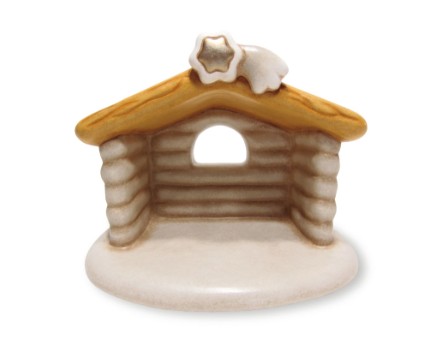
Thun Shop Taranto via D'Aquino - Quest'anno tira fuori il tuo Presepe da sogno dal cassetto. La capanna della tradizione sarà la protagonista del tuo magico Natale 🌟 | Facebook

THUN - Set Presepe Classico Capanna e Sacra Famiglia - Ceramica - 19 cm h : Amazon.it: Casa e cucina

THUN - Statuina Capanna Presepe - Decorazioni Natale Casa - Linea Presepe Classico - Ceramica - 28 x 14 x 20 h cm : Amazon.it: Casa e cucina

THUN® - Presepe Completo Set Capanna: Sacra Famiglia - Versione Rossa - Statuine Presepe Classico - Ceramica - I Classici : Amazon.it: Casa e cucina





















